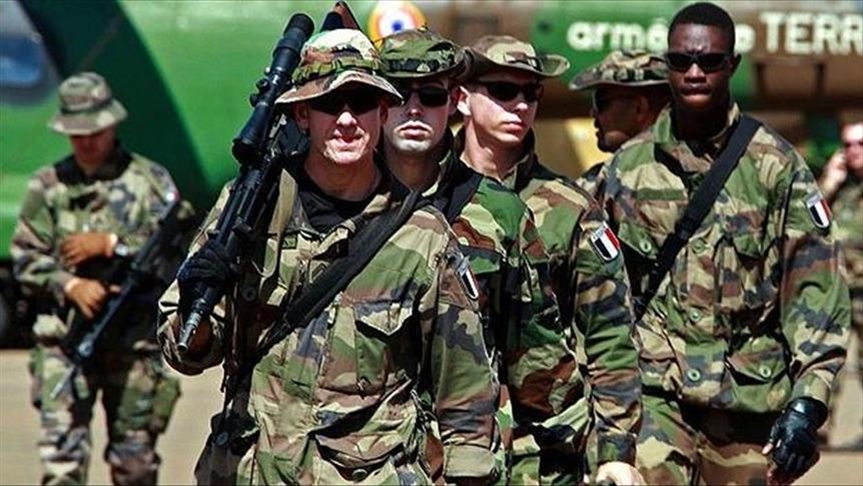
KIGALI, Rwanda
News of a scandalous cover-up involving the French Interior Ministry and cement giant Lafarge’s ties with the notorious Daesh/ISIS terror group is nothing but “hypocrisy,” according to an expert, especially given that France is rallying a coalition of countries fighting extremist militants in Africa’s Sahel region.
Leaked official French documents suggest that France’s intelligence agencies never warned Lafarge that they were committing a crime before the company was charged with “complicity in crime against humanity” over funding Deash/ISIS in order to continue the company’s operations in Syria.
In an interview with Anadolu Agency, Freddie David Egesa, a Uganda-based security analyst, said some superpowers “show face” internationally, but join the fight against terrorism as “double dealers” depending on which side their country benefits most.
“In this particular case, France dealing with Lafarge was not by default but a fulfillment of one of their objectives. Against such a background, clearing the affected countries of terrorism with such a level of hypocrisy by some superpowers is putting expectations so high,” he said.
“It is common knowledge that some superpowers join the fight against terrorism as business in a way, getting cheap minerals and war-associated business. For example, trading in arms in exchange for relevance as a protector.”
France maintains about 5,100 soldiers in West Africa as part of its Operation Barkhane with its headquarters in Chad’s capital N’Djamena.
Its forces are mainly focused on tackling armed groups in Burkina Faso, Chad, and Niger.
Thousands of people have been killed and millions displaced in the Sahel, a region that has become a major front for militants over the past decade.
French President Emmanuel Macron in July announced a drawdown in its military presence there.
The French military has killed a number of major militant leaders in the Sahel in recent years, the latest being Adnan Abu Walid al-Sahrawi, the leader of regional Daesh/ISIS affiliate known as Islamic State in the Greater Sahara, the militant group responsible for some of the worst violence in West Africa’s Sahel region.
The death of al-Sahrawi, who France listed as enemy number one and was wanted for deadly attacks on US soldiers and foreign aid workers, followed the killing in June 2020 of al-Qaeda leader Abdelmalek Droukdel.
Sahrawi had pledged allegiance to the Islamic State in Iraq and Syria in 2015.
In announcing the death of Sahrawi last week, Macron described it as “yet another major success in our fight against terrorist groups in the Sahel.”
However, Egesa argued that France’s blunder in Syria will bring its commitment under serious scrutiny and it could complicate its efforts to rally support for concerted action against extremism.
“When superpowers ‘play ping pong’ with the associates of insurgents, then you can be sure that they lack the will and seriousness to effectively stabilize that area of conflict because by doing so, they will sabotage their other clandestine motives and objectives,” he said.
“Definitely France to a person in the heat of war is another problem, not a solution to the war, and such a scandal negates its credibility.”
In Mali, activists have protested against the French military presence in the country, claiming France’s eight years of intervention have been a failure.
France deployed troops to Mali in 2013 to help drive out extremist militants who had occupied the north of the country.
Egesa underlined that relying on foreign troops to ensure security is unsustainable without addressing the core issues.
“International military intervention can only quiet the internal violence for a while but may not deal with the gist of the problem, which is weak leadership,” he said.
“The locals there are suspicious about the foreign military help because of the hidden economic motives of some of the states committing forces.”
Anadolu Agency website contains only a portion of the news stories offered to subscribers in the AA News Broadcasting System (HAS), and in summarized form. Please contact us for subscription options.







